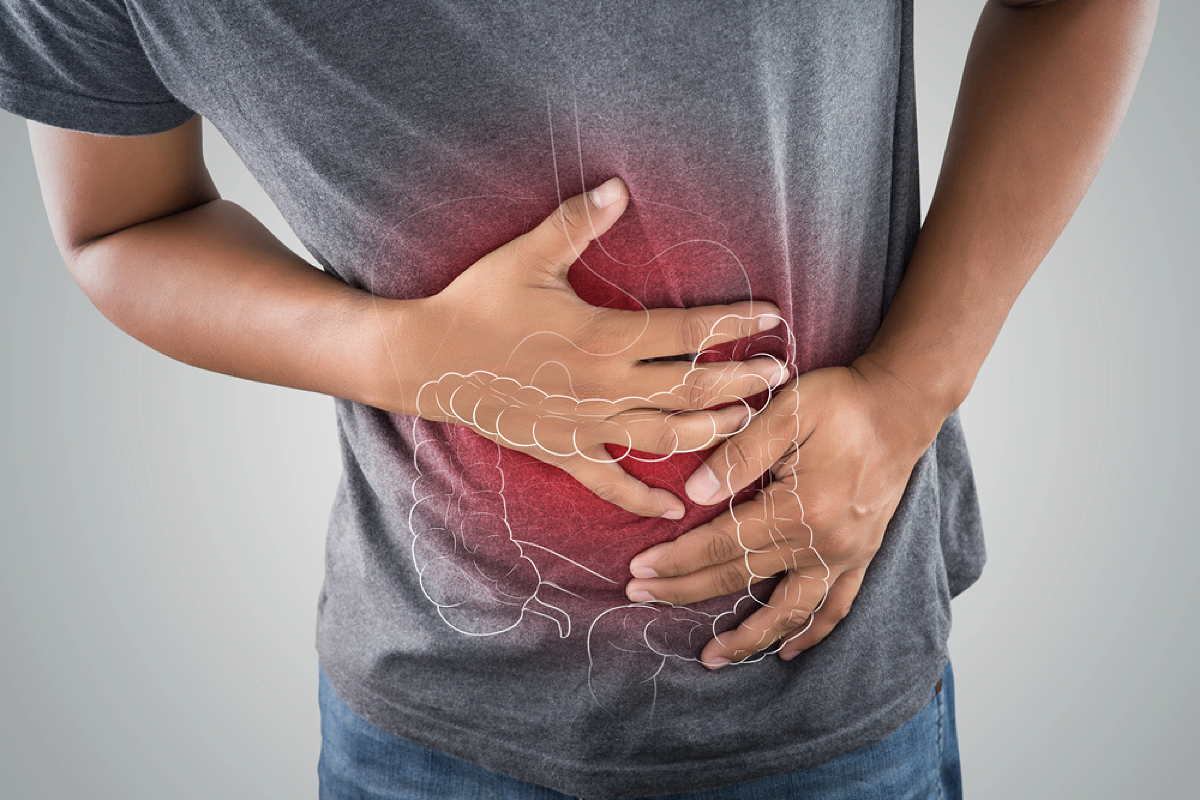What helps against constipation? Home remedies and dietary advice
Constipation, also known as constipation, is a common problem that affects around 15 percent of people in Germany. The frequency increases with age and those affected suffer from difficult bowel movements and hard stools.
An unbalanced diet and a lack of fluid intake can severely impair digestion. Home remedies and dietary changes can provide relief from constipation.
By adjusting their diet and using effective home remedies, sufferers can improve their bowel health and make bowel movements easier. A healthy diet and sufficient fluid intake are crucial for good digestion.
Understanding constipation: Symptoms and signs
The symptoms of constipation are varied and can be considerably debilitating. Many sufferers initially experience bloating, general discomfort, chills and a bloated stomach.
When do we speak of constipation?
Constipation is characterized by difficult or infrequent bowel movements. In most cases, small and hard portions of stool are only passed by pushing hard. This condition can lead to considerable discomfort.
Frequent accompanying symptoms
Typical symptoms include flatulence, bloating and a distended abdomen. Many sufferers complain of abdominal pain, which can occur particularly during bowel movements. Prolonged constipation can also be accompanied by nausea, loss of appetite and general malaise.
The combination of these symptoms can lead to considerable restrictions in everyday life and should therefore be taken seriously. Early detection and treatment can help to improve quality of life.
Causes of constipation at a glance
There are many causes of constipation, ranging from dietary habits to certain illnesses. Constipation can be triggered by various factors that need to be understood in order to deal with them effectively.
Nutritional factors
A low-fiber diet can lead to constipation. Drinking enough fluids is also important to facilitate bowel movements.
Medication as a trigger
Certain medications, such as opioids and some antidepressants, can cause or worsen constipation.
Diseases and physical causes
Various diseases can cause constipation. These include metabolic disorders such as diabetes mellitus and hypothyroidism, neurological diseases such as multiple sclerosis and Parkinson’s disease, as well as structural changes to the bowel.
| Disease/change | Description | Example |
|---|---|---|
| Metabolic disorders | Metabolic disorders that affect the intestines | Diabetes mellitus, hypothyroidism |
| Neurological diseases | Diseases that affect the nerve supply to the intestine | Multiple sclerosis, Parkinson’s disease |
| Structural changes | Changes in the bowel that impede bowel movements | Diverticula, tumors, constrictions |
What helps against constipation: the most important immediate measures
If constipation occurs, there are several immediate measures that can help. These measures are aimed at facilitating bowel movements and aiding digestion.
Drink enough fluids
An important factor in combating constipation is drinking enough fluids. Water helps to soften the stool and facilitate its passage through the bowel.
Movement to stimulate the bowels
Exercise can also help to relieve constipation. Light exercise can stimulate bowel activity and aid digestion.
The correct toilet posture
The correct posture on the toilet can make bowel movements easier. A study has shown that the natural squatting posture is effective against constipation as it stretches the rectum.
| Tips | Description |
|---|---|
| Squatting position | A slight squatting position, with the knees higher than the hips, makes it easier to empty the bowels. |
| Footrest | A small stool under the feet can straighten the angle of the rectum and facilitate emptying. |
| Upper body posture | The upper body should be slightly bent forward during bowel movements to increase the pressure on the abdomen. |
High-fiber diet as a basis
Dietary fiber plays a central role in promoting healthy digestion and can effectively counteract constipation. An adequate intake of fiber is therefore crucial for the prevention and alleviation of digestive problems.
Why dietary fiber is so important
Dietary fiber helps to regulate the stool and stimulate intestinal activity. They help to keep the bowel healthy and can therefore prevent constipation.
The best high-fiber foods
High-fiber foods include wholegrain products, fruit, vegetables and pulses. Examples include wholemeal bread, oatmeal, apples and carrots.
| Food | Fiber content per serving |
|---|---|
| Wholemeal bread (100g) | approx. 8g |
| Oat flakes (50g) | approx. 5g |
| Apple | approx. 3g |
Daily fiber requirement
Experts recommend consuming at least 30 grams of fiber per day. In the case of chronic constipation, the requirement can be increased to up to 40-50 grams per day. A gradual increase in fiber intake is important to avoid bloating.
Effective home remedies for constipation
Natural home remedies are a good alternative to medication for constipation. They offer a gentle and sustainable solution to regulate digestion.
Linseed and psyllium husks
Linseed and psyllium husks are rich in fiber and can help to promote bowel movements. They swell up in the intestine and thus facilitate intestinal transit.
Dried fruit and dried fruit
Dried fruits such as prunes, apricots and figs are natural laxatives. They are rich in fiber and sorbitol, which aids digestion.
Natural laxatives from the kitchen
There are numerous foods in the kitchen that can help with constipation. Sauerkraut and other fermented foods contain probiotics that support the intestinal flora. Olive oil can act as a natural lubricant for the bowel, while honey has a mild laxative effect.
Teas and drinks to stimulate the bowels
An effective way to combat constipation is to drink certain teas and drinks that stimulate the bowels. These can help to support digestion and stimulate bowel function.
Senna tea and other laxative herbal teas
Senna tea is a well-known remedy for stimulating digestion. Herbal anthraquinones, such as those found in senna leaves, are also among the stimulating laxatives. However, “herbal” does not necessarily mean “gentler”.

Warm water with lemon in the morning
A glass of warm water with freshly squeezed lemon juice in the morning on an empty stomach is a simple but effective remedy for constipation. The combination of warmth and the slightly acidic effect of lemon stimulates digestion and intestinal activity.
- The citric acid contained in lemons promotes the production of stomach acid and digestive enzymes.
- For optimum effect, the drink should be consumed immediately after getting up and about 30 minutes before breakfast.
The right morning routine for healthy bowel movements
A healthy morning routine can be crucial for regular bowel movements. By incorporating certain habits into your morning, you can prepare your body for a healthy bowel.
The perfect breakfast for constipation
A high-fiber breakfast can help to promote bowel movements. Foods such as oatmeal, fruit and nuts are ideal components of such a breakfast.
Time management for going to the toilet
Effective time management for going to the toilet is crucial to avoid constipation. Ideally, sufficient time should be set aside for going to the toilet at the same time every day, preferably after breakfast.
| Tips | Description |
|---|---|
| Breakfast | High-fiber breakfast promotes bowel movements |
| Time management | Plan to go to the toilet at the same time every day |
| Avoid stress | Avoid stress and time pressure when going to the toilet |
Movement exercises to stimulate the bowels
Exercise is the key to healthy digestion. To get the bowels moving properly again, they need to be moved. Exercise speeds up digestion and helps to overcome constipation.
Simple abdominal exercises for at home
Simple exercises such as tensing the abdominal muscles or light stretching exercises can help to stimulate the bowels. These exercises can be done comfortably at home and do not require any special equipment.
Daily exercise recommendations
For a healthy gut, it is recommended to plan at least 30 minutes of moderate exercise every day. Endurance sports such as walking, jogging, swimming or cycling are particularly effective as they get the whole body moving, including the bowel.
When to see a doctor for constipation?
If constipation is persistent or severe, you should not hesitate to consult a doctor. Constipation, also known as constipation, can have various causes and in some cases may indicate an underlying medical condition.
Alarm signals and warning signs
There are certain alarm signals that indicate that constipation is no longer normal and requires medical attention. These include sudden, severe abdominal pain, blood in the stool, unexplained weight loss and fever.
- Heavy pushing during bowel movements
- Lumpy, hard stool
- Feeling of incomplete emptying
- Less than three discharges per week
Recognizing chronic constipation
One speaks of chronic constipation if at least two of the symptoms mentioned have occurred regularly or repeatedly for at least three months. Untreated chronic constipation can lead to complications such as haemorrhoids, anal fissures or a slackening of the pelvic floor.
Medical treatment options
If home remedies and dietary changes do not help, medical treatment options for constipation can be considered. These options are varied and range from over-the-counter laxatives to prescription medications.
Over-the-counter laxatives at a glance
Over-the-counter laxatives are a first option for people suffering from constipation. They include different groups of active ingredients that work in different ways.
Macrogol and other water binders
Macrogol is an osmotic laxative that binds water in the intestine and thus softens the stool. This facilitates bowel evacuation and can support good digestive regulation if taken regularly.
Stimulating laxatives
Stimulating laxatives such as bisacodyl and sodium picosulphate act directly on the intestinal muscles and accelerate bowel movements. They are first activated in the intestine and cause less water to be removed from the stool, making it softer and more voluminous.
The most important aspects of taking stimulant laxatives include:
- They work relatively quickly, usually within 6-12 hours.
- Side effects such as abdominal cramps and diarrhea may occur.
- Long-term use without medical advice is not recommended.
Special situations: Constipation when traveling and during pregnancy
Many people experience constipation during certain phases of life, such as when traveling or during pregnancy. These situations bring with them particular challenges that can affect the digestive system.
Tips for on the go
While traveling, a change in dietary habits and lack of exercise can lead to constipation. It is advisable to drink plenty of fluids and eat light, high-fiber meals.
Safe measures during pregnancy
Pregnant women often suffer from constipation due to hormonal changes and the pressure of the growing uterus on the bowel. A high-fiber diet, sufficient fluid intake and moderate exercise such as swimming are recommended.
| Measure | Travel | Pregnancy |
|---|---|---|
| High-fiber diet | Recommendable | Highly recommended |
| Sufficient fluids | Important | Very important |
| Moderate movement | Advisable | Very advisable |
Long-term strategies for healthy digestion
Preventing constipation and promoting healthy digestion requires a holistic approach to lifestyle.
A balanced diet with sufficient fiber, regular exercise and effective stress management are crucial for healthy bowel function.
Healthy habits such as eating regular meals and taking enough time to go to the toilet can prevent constipation. A healthy intestinal flora, supported by probiotic foods and prebiotic fiber, also plays an important role.
A balanced ratio between soluble and insoluble fiber helps to prevent both constipation and diarrhea and to overcome intestinal sluggishness in humans.






